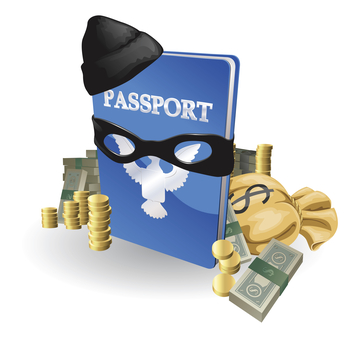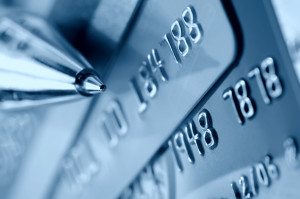 A few days ago I called American Express because I wanted them to send us a new Bluebird card, since we hadn’t been able to find the prepaid card we used in Europe.
A few days ago I called American Express because I wanted them to send us a new Bluebird card, since we hadn’t been able to find the prepaid card we used in Europe.
It turns out someone else used a fraudulent card with our number at an ATM last month, twice, each time withdrawing 50 euros.
We’d used the card since getting back, so we know it hadn’t been left behind. The thief had not only the card number but the PIN, so we suspect a skimmer was used to capture the information while we were abroad and the bad guys only recently decided to use it.
I’m delighted to say that, after a few false starts, I finally found an Amex employee who knew what she was doing, and the purloined amount was restored to a freshly-issued card.
Today, I got a letter that one of our credit card accounts had been frozen because of suspicious activity. It turns out someone impersonating me had called in to change our address to one in Winnetka, a nearby neighborhood in Los Angeles. Fortunately, Capital One froze the account before she could misuse it. We’ll have to be without a card for a few days while a new one is sent to us, but that’s the extent of our inconvenience.
These incidents underscored for me why it’s so much better to use credit cards (and the right prepaid card) in a world full of identity theft. If these thieves had gotten hold of my debit card, they could have drained our bank account and we’d be waiting to get the money back while transactions bounced right and left. That wait could be protracted if your financial institution questions whether fraud really occurred. With credit cards, you aren’t required to pay the disputed amount until the issuer completes its investigation.
Our recent brushes with fraud also underscore how important it is that Americans get the chip-and-PIN technology used in Europe and much of the rest of the world. Credit card issuers and retailers are in the process of transitioning slowly to this much more secure standard, starting with cards that have both a computer chip and the old-fashioned magnetic stripe. But the sooner we get to cards that must be used with a PIN for purchases, the better.
Some issuers publicly worry that we Americans will have a hard adapting to the new technology, which is absurd. It’s no harder to use a chip-and-PIN machine at a checkout register than it is to use an ATM. You stick your card in the little slot at the bottom of the checkout terminal, punch in your four-digit number and you’re done. And you’re also done with the vast majority of account takeover fraud.

